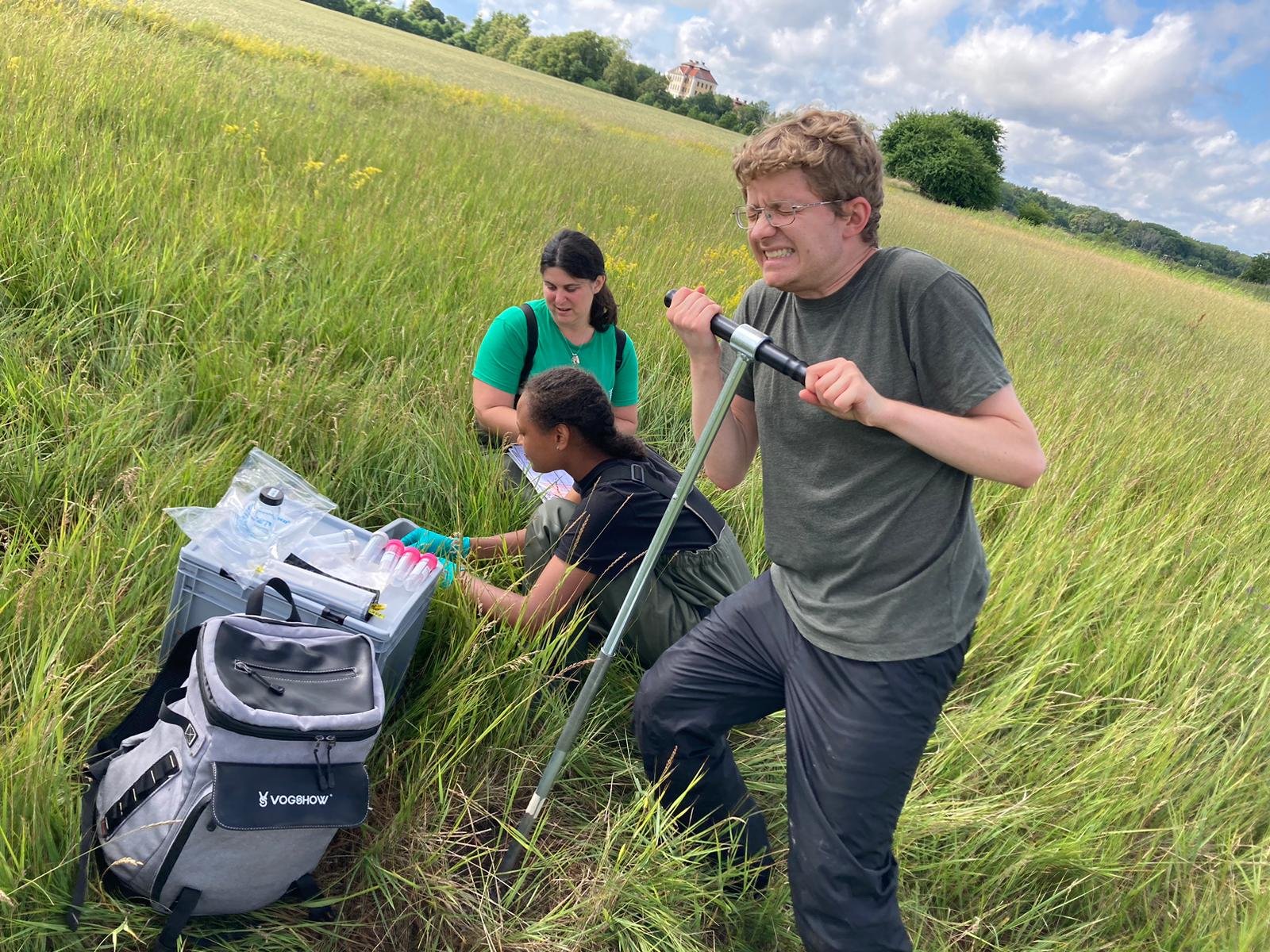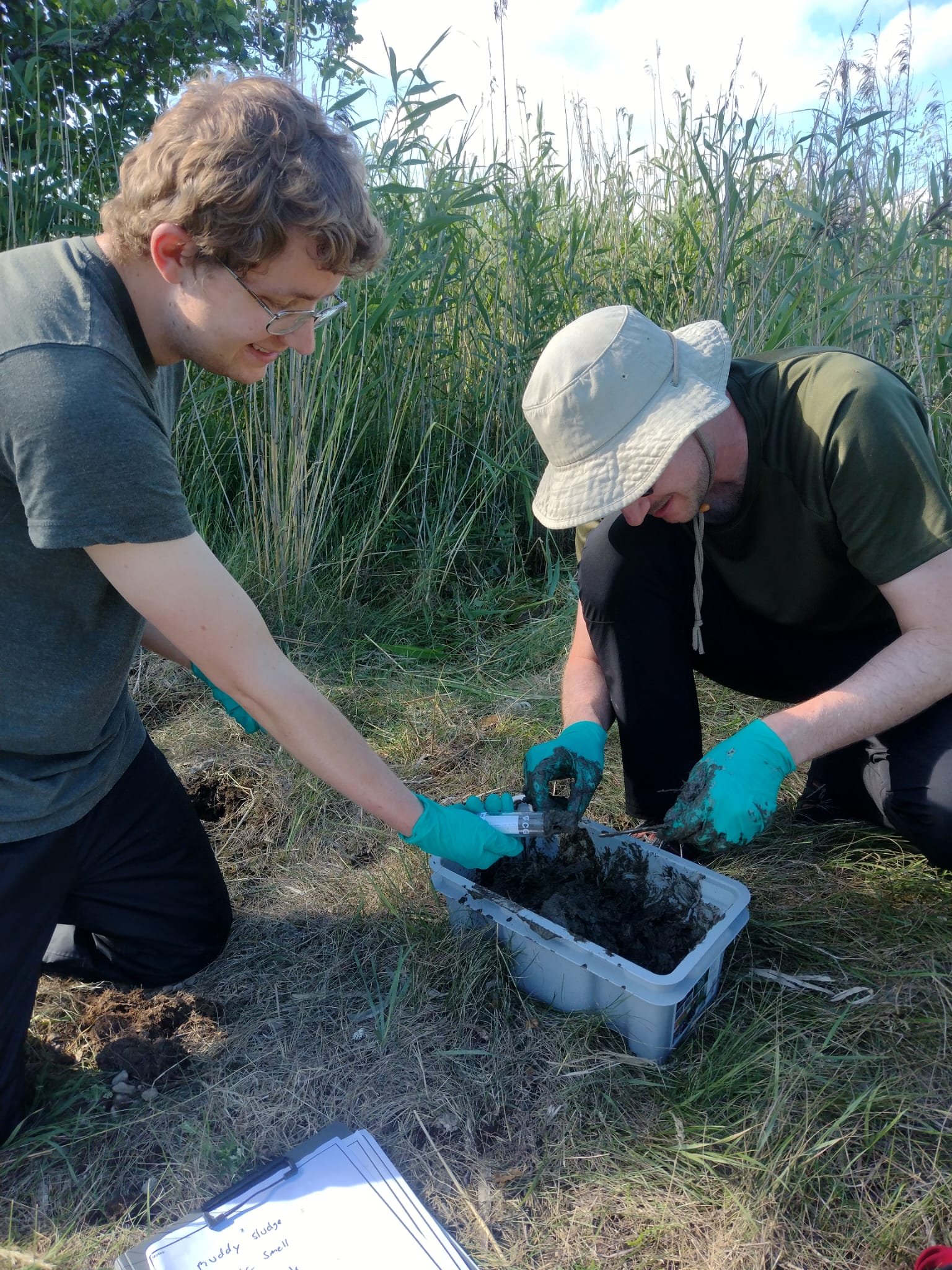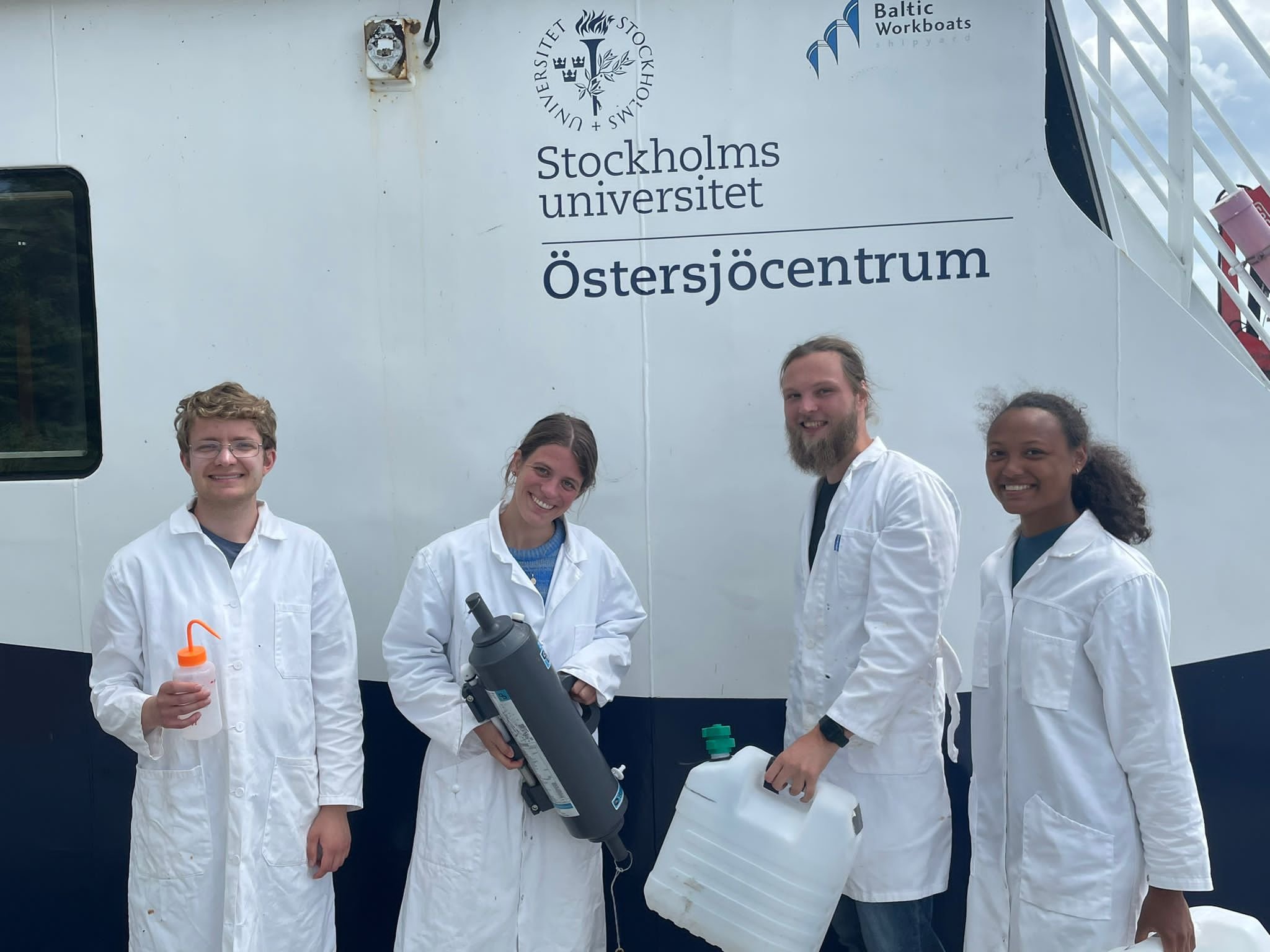As summer draws to a close, we caught up with our five AMRI researchers who volunteered for a week at Stockholm University’s Askö Research Station as part of EMBL’s massive TREC project. TREC – Traversing European Coastlines, a sweeping expedition that casts an investigative net across the entirety of Europe's coastlines, crisscrossing the continent through a carefully orchestrated ensemble of 120 land-sea transects. The 2 year endeavor aims to explore “biodiversity and molecular adaptability of microbial communities as well as key selected organisms,” with precision protocol methods for sampling in soils, sediments, and waters.
The TREC project AMRI volunteers: From left, Rickard Stenow (Gothenburg University), Anushree Sanyal (Södertorn University), Isabel Katharina Erb (Lund University), Michelle Verstraaten (Stockholm University), Anders Svensson (Stockholm University)
AMRI’s five enthusiastic volunteers engaged in the unique opportunity to take part in this vast project, and we talked with them about their experiences during their week in July with TREC.
What are your takeaways and strongest impressions from the experience of working with TREC?
Anders Svenssion, Msc, Stockholm University: ”I knew that this was a big project, but I didn’t comprehend the sheer size of it - and Askö wasn’t even a super site! Previous large expeditions like the Tara project from a couple of years ago are still analyzing data, but the sheer volume of data from TREC must be staggering.”
Anushree Sanyal, PhD, Södertorn University: ”I work with sediments, but sampling is usually done by my collaborators. It was a refreshing change to take part in the sub-sampling process firsthand. I focused on sediment sampling, exploring diverse sub-sampling approaches – witnessing these methods in action was pivotal for me. We sampled soils at various transects, targeting the prevailing species. It was captivating to witness the spectrum of variations, data, and the questions that this endeavor aims to address.”
All five volunteers were impressed by how well the project's coordination works. Challenges like obtaining permits in central Stockholm showed the complexity of dealing with local regulations. The TREC team's adaptability was equally impressive, as they found creative solutions, alternative sampling sites, and improved methods. Michelle Vertstraaten, a biology MSc from Stockholm University, who participated in TREC sampling at Askö and Kristineberg sites, noted that while TREC had a clear protocol, they showed flexibility on-site. Isabel Katharina Erb, PhD student from Lund University, mentioned the need for changing sampling sites due to rocky sediments, and the TREC-AMRI teams adjusted schedules according to weather forecasts.
When asked about differences between TREC and their own sampling in Sweden, Rickard Stenow, a Gothenburg University doctoral student, explained, "TREC's modular protocol, with many volunteers, was adaptable. This project benefits from a broad approach, whereas I focus more specifically." Rickard also praised TREC's seamless personnel rotation—2 to 3 weeks per individual over 2 years. Coordinating individuals across Europe is a significant endeavor, demanding meticulous effort and dedication.
After almost a month of sampling in Sweden, TREC departed Kristineberg and is now headed for Southampton, United Kingdom. Follow their journey on Twitter here: https://twitter.com/EMBLtrec
Quotes have been edited for concision
See the TREC sampling itinerary here: https://trec.embl.de/itinerary.cgi
To read more about the TREC sampling at Askö, and see photos of our AMRI volunteers, check out this article: https://www.su.se/stockholm-university-baltic-sea-centre/news/european-expedition-explores-coastal-ecosystems-at-the-molecular-level-1.664018
More photos from TREC:





